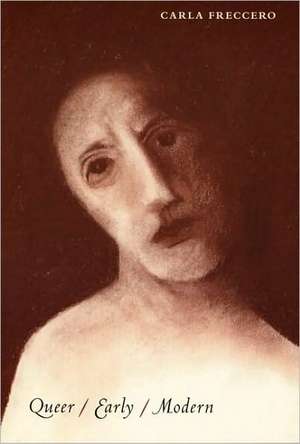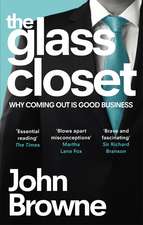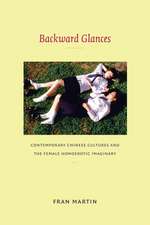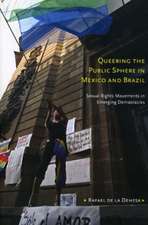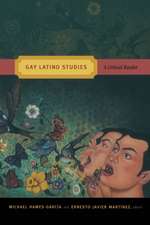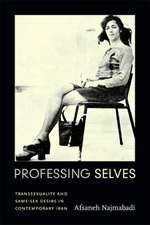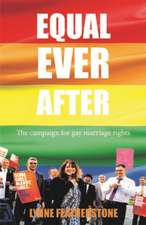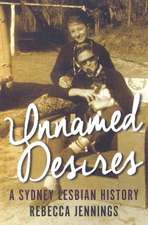Queer/Early/Modern: Series Q
Autor Carla Frecceroen Limba Engleză Paperback – 15 ian 2006
Din seria Series Q
-
 Preț: 240.90 lei
Preț: 240.90 lei -
 Preț: 174.69 lei
Preț: 174.69 lei -
 Preț: 146.75 lei
Preț: 146.75 lei -
 Preț: 217.18 lei
Preț: 217.18 lei -
 Preț: 176.68 lei
Preț: 176.68 lei -
 Preț: 158.81 lei
Preț: 158.81 lei -
 Preț: 169.81 lei
Preț: 169.81 lei -
 Preț: 194.37 lei
Preț: 194.37 lei -
 Preț: 227.14 lei
Preț: 227.14 lei -
 Preț: 168.75 lei
Preț: 168.75 lei -
 Preț: 191.15 lei
Preț: 191.15 lei -
 Preț: 191.36 lei
Preț: 191.36 lei -
 Preț: 151.58 lei
Preț: 151.58 lei -
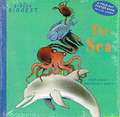 Preț: 243.90 lei
Preț: 243.90 lei -
 Preț: 193.54 lei
Preț: 193.54 lei -
 Preț: 210.82 lei
Preț: 210.82 lei -
 Preț: 217.18 lei
Preț: 217.18 lei -
 Preț: 151.10 lei
Preț: 151.10 lei -
 Preț: 264.26 lei
Preț: 264.26 lei -
 Preț: 231.22 lei
Preț: 231.22 lei -
 Preț: 266.93 lei
Preț: 266.93 lei -
 Preț: 305.08 lei
Preț: 305.08 lei -
 Preț: 230.02 lei
Preț: 230.02 lei -
 Preț: 314.12 lei
Preț: 314.12 lei -
 Preț: 304.47 lei
Preț: 304.47 lei -
 Preț: 264.26 lei
Preț: 264.26 lei -
 Preț: 267.70 lei
Preț: 267.70 lei -
 Preț: 262.32 lei
Preț: 262.32 lei -
 Preț: 236.86 lei
Preț: 236.86 lei -
 Preț: 270.20 lei
Preț: 270.20 lei -
 Preț: 265.79 lei
Preț: 265.79 lei -
 Preț: 231.60 lei
Preț: 231.60 lei -
 Preț: 270.31 lei
Preț: 270.31 lei - 5%
 Preț: 197.54 lei
Preț: 197.54 lei - 9%
 Preț: 667.83 lei
Preț: 667.83 lei - 15%
 Preț: 623.39 lei
Preț: 623.39 lei -
 Preț: 259.54 lei
Preț: 259.54 lei
Preț: 229.09 lei
Nou
Puncte Express: 344
Preț estimativ în valută:
43.84€ • 45.60$ • 36.19£
43.84€ • 45.60$ • 36.19£
Carte tipărită la comandă
Livrare economică 14-28 aprilie
Preluare comenzi: 021 569.72.76
Specificații
ISBN-13: 9780822336907
ISBN-10: 0822336901
Pagini: 192
Dimensiuni: 155 x 235 x 16 mm
Greutate: 0.29 kg
Editura: MD – Duke University Press
Seria Series Q
ISBN-10: 0822336901
Pagini: 192
Dimensiuni: 155 x 235 x 16 mm
Greutate: 0.29 kg
Editura: MD – Duke University Press
Seria Series Q
Recenzii
Had he lived in the sixteenth century, André Breton would have proclaimed: Art will be queer or it will not be. Such is the enduring truth we obtain from Carla Frecceros powerful, inventive, indeed genial readings of the early modern canon. A brilliant work showing us what we can do with what we call the past.Tom Conley, author of The Self-Made Map: Cartographic Writing in Early Modern FranceCarla Frecceros beautifully written book offers a strong, persuasive, and new way of reading queer early modern texts. Refusing the historicist view that would draw fierce lines between premodern and modern, Freccero asks her reader to consider premodern texts as intervening in the logic of their times and persisting within modernity in spectral form. Her intense engagement with queer early modern scholarship is enriched and disoriented by her insistence that contemporary practices of queering are haunted by their unfinished and unfinishable past. Her singular and deft way of moving between contemporary culture and politics and the animated remnants of premodern texts offers a brilliant model for contemporary scholarship and a truly innovative turn in queer studies.Judith Butler, Maxine Elliot Professor at the University of California, BerkeleyFor scholars working on gender in early modern texts, this book is both a useful synthesis of some of the most significant texts in postmodern-gender-queer theory and an original use of these texts to elaborate subtle, complex, and flexible readings of early modern texts. . . . The questions Freccero raises and the arguments she offers open the door to more careful and inclusive readings of long-neglected texts that haunt our own culture, and to a radical revision of our attitudes towards the past.Kathleen Long, Renaissance QuarterlyCarla Freccero's Queer/ Early/ Modern is an intensely engaged and elegantly written meta-commentary on the practice of reading the past, punctuated by passionate close readings of early modern French and Italian literary texts. Graham Hammill, Bryn Mawr Classical Review
Notă biografică
Textul de pe ultima copertă
"Carla Freccero's beautifully written book offers a strong, persuasive, and new way of reading queer early modern texts. Refusing the historicist view that would draw fierce lines between premodern and modern, Freccero asks her reader to consider premodern texts as intervening in the logic of their times and persisting within modernity in spectral form. Her intense engagement with queer early modern scholarship is enriched and disoriented by her insistence that contemporary practices of 'queering' are haunted by their unfinished and unfinishable past. Her singular and deft way of moving between contemporary culture and politics and the animated remnants of premodern texts offers a brilliant model for contemporary scholarship and a truly innovative turn in queer studies."--Judith Butler, Maxine Elliot Professor at the University of California, Berkeley
Cuprins
Descriere
Addresses theoretical and historical issues related to debates in queer theory and in early modern studies by reading early and late modern texts, archival materials, and contemporary popular works
